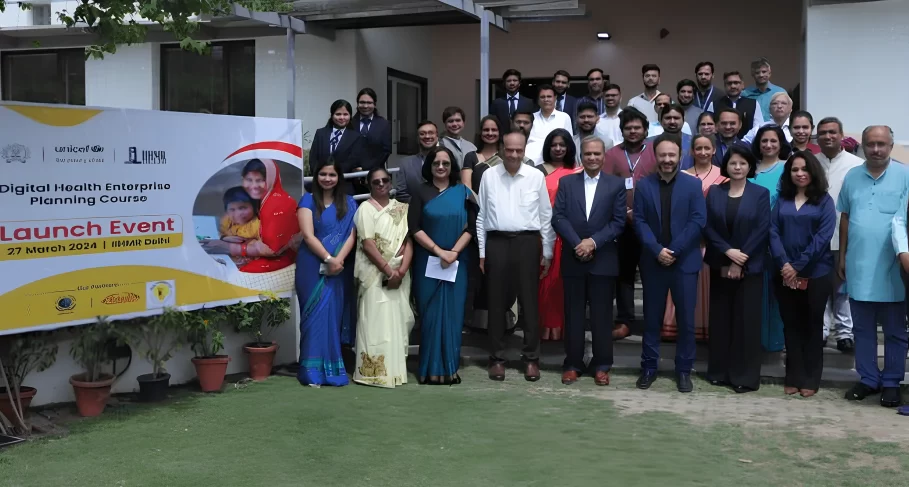UNICEF India, the International Institute of Health Management Research (IIHMR) in Delhi, and the Indian Institute of Technology Bombay (IIT Bombay) recently launched a comprehensive health course. The ‘Digital Health Enterprise Planning Course’, which begins on April 17, 2024, will provide healthcare professionals such as doctors, nurses, pharmacists, healthcare administrators, and allied health professionals with the skills they need to support the healthcare sector’s digital transformation. Policymakers, IT professionals, and those interested in adopting healthcare technology can attend the course.
The course is a significant step towards UNICEF India’s commitment to the Global Initiative on Digital Health (GIDH), launched during India’s G20 presidency in 2023. It aims to improve healthcare delivery by efficiently utilizing digital technology for the Sustainable Development Goals (SDGs) and the GIDH.
Addressing the keynote during the course launch, Cynthia Mc Caffrey, UNICEF India Representative, said:
The digital health course launched by IIHM, IIT Mumbai, and UNICEF today builds on India’s commitment to promoting digital innovation in the health system by equipping healthcare professionals with cutting-edge skills and leveraging digital technologies. The course catalyzes innovative solutions, strengthening healthcare delivery across the country and helping accelerate reach to the last child.
Cynthia added:
The transformative journey we embark on is focused on equity; its success will not be gauged by the technologies we employ but by the impact made on the lives of every girl, boy and the communities we empower.
The course is designed to address the growing demand for digital health education and to bridge the training gap among healthcare professionals.
The 10-week course consists of nine modules that address a variety of subjects relevant to digital health deployment. It begins with understanding the link between digital technology and healthcare, then moves on to create national digital health systems, integrate digital interventions into health systems, and implement digital health projects utilizing an enterprise strategy. Participants will learn how to develop digital health strategies, implement enterprise plans, build digital health platforms, carry out interventions, manage costs and procurement, and address governance, laws, regulations, and workforce challenges. It concludes with a module on the future of digital health.
Prof. Sutapa B. Neogi (Director), IIHMR Delhi, commented:
Many health professionals need monetary training and education in digital technology to effectively utilize digital health tools and navigate the complexities associated with their implementation. By equipping healthcare professionals with the necessary skills and knowledge, this course will enhance their competence to adapt to the digital era and optimize healthcare delivery systems across India, particularly in underserved communities.
The course curriculum was developed in consultation with leading experts from IIHMR Delhi and IIT Mumbai, as well as technical inputs from UNICEF India, and is adapted for the Indian context from a global programme offered by the Digital Health Centre of Excellence (DICE), a multi-agency consortium co-led by UNICEF and WHO. The programme adopts a blended approach, including online modules, virtual lectures, interactive discussions, and hands-on workshops.
